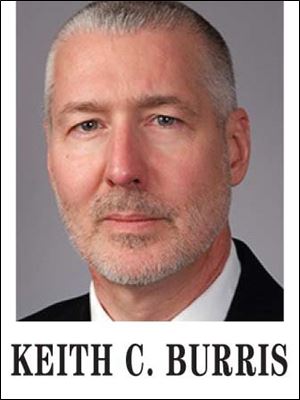
COMMENTARY
Low-profile heroes have a big impact across Toledo
12/1/2013
La Posada houses up to 38 people and its mission is the homeless family...
I have been in a fair number of shelters, and what you immediately notice at La Posada, when you go there is how clean it is. This is a matter of respect for the “house guests” — they are not clients — says Brenda, a senior residential specialist at La Posada.
Rodney Schuster, head of Catholic Charities, was my guide. Brenda was our host. Brenda cooks for the guests every night, in addition to keeping the house in working order. She is excited about a grant from The Andersons that will provide a new kitchen. She tells us about a recently admitted guest who spent the first few hours after admission in tears — so great was her sense of failure and abandonment. By dinner time, she was laughing.
Another staffer, Jeanelle, tells me, “When they come to me they are broken.”
La Posada operates on a couple of simple principles: One is total acceptance. You don’t have to be a Catholic to come there. You don’t even have to be legally married. You only have to be in need. Second, you must take some responsibility for your life. You have to be willing to help yourself. La Posada will empower you. It can’t order your life for you.
La Posada runs nutrition classes, a budgeting class, and a parenting class, as well as a class on domestic violence. The idea is to better prepare people for re-entry into a world where they have known troubles. Most house guests have only 60 days to get their acts together.
A Bible class, which runs once a month, is also offered and is increasingly popular. Brenda tells me that the teacher, Peter, comes from Thomas More (Catholic) University Parish in Bowling Green and that he initially attracted the female guests because Peter is good-looking. But people keep coming back because Peter is so scholarly, spiritual, and open to all traditions.
Jeanelle tells me about a house guest with a history of incarceration. Trouble and jail were the only life he ever knew. But now he has a child, and a job, and he’s going to that Bible class.
There is help available to people alone and in trouble in Toledo, thanks to saints like Brenda and Jeanelle.
But the odds are still long for some.
Rodney tells me about a man he knew when he worked at the Cherry Street Mission. He got all kinds of help. And he prayed — usually for a job. But his felony convictions made that impossible. One day he ripped up his parole papers and said, “Tell them to come and get me. I’m better off inside.” He went “home” to jail.
Next, Rodney took me to Helping Hands of St. Louis in East Toledo, where there is a soup kitchen, a food pantry, and the old church is now a “free store,” full of all sorts of clothing. It is manned completely by volunteers. Joan and Anita, two of the volunteers, tell me that the number of hungry and cold people is increasing in East Toledo.
The two women fear that Helping Hands will be “discovered” by people across the river. They fear they will not be able to accommodate them all.
Volunteers and neighbors are making a difference in this community every day. Their goal is social justice, rather than “toxic charity.” There are more of these people than we generally acknowledge. And there are not enough of them.
With the end of the mayor’s race, this column shifts focus to the wider topic of the city of Toledo — its issues and its people, its frustrations, hopes, and many invisible heroes.
A column like this is not the property, or personal sandbox, of one man. Send me your stories of local heroes. This column must serve you.
Keith C. Burris is a columnist for The Blade.
Contact him at: kburris@theblade.com or 419-724-6266.